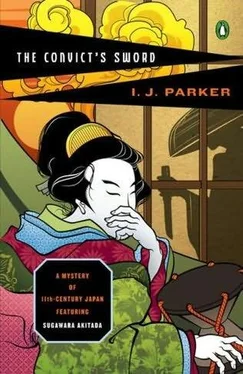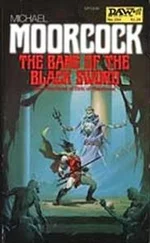I Parker - The Convict's sword
Здесь есть возможность читать онлайн «I Parker - The Convict's sword» весь текст электронной книги совершенно бесплатно (целиком полную версию без сокращений). В некоторых случаях можно слушать аудио, скачать через торрент в формате fb2 и присутствует краткое содержание. Жанр: Исторический детектив, на английском языке. Описание произведения, (предисловие) а так же отзывы посетителей доступны на портале библиотеки ЛибКат.
- Название:The Convict's sword
- Автор:
- Жанр:
- Год:неизвестен
- ISBN:нет данных
- Рейтинг книги:4 / 5. Голосов: 1
-
Избранное:Добавить в избранное
- Отзывы:
-
Ваша оценка:
- 80
- 1
- 2
- 3
- 4
- 5
The Convict's sword: краткое содержание, описание и аннотация
Предлагаем к чтению аннотацию, описание, краткое содержание или предисловие (зависит от того, что написал сам автор книги «The Convict's sword»). Если вы не нашли необходимую информацию о книге — напишите в комментариях, мы постараемся отыскать её.
The Convict's sword — читать онлайн бесплатно полную книгу (весь текст) целиком
Ниже представлен текст книги, разбитый по страницам. Система сохранения места последней прочитанной страницы, позволяет с удобством читать онлайн бесплатно книгу «The Convict's sword», без необходимости каждый раз заново искать на чём Вы остановились. Поставьте закладку, и сможете в любой момент перейти на страницу, на которой закончили чтение.
Интервал:
Закладка:
“It’s been so long, sir. All I remember is some muttering about ‘my sword’ or ‘where’s my sword,’ or ‘my fine sword.’ Sorry, sir.”
“Never mind. I should have asked him before he got fatally wounded, but my mind was on other matters then. Do you remember anything else? About this praying, for example?”
Tora, though visibly concentrating, shook his head.
They were passing the walled and gated compound of the administration of the Left Capital. Akitada stopped. “I wonder if Haseo spent any time studying swordsmanship. Perhaps the city administration has a record of him.”
“Ah,” said Tora. “Very good! Wish I’d thought of that. But what about Tomoe?”
“Later. Where does this street singer of yours perform?”
“On the tower platform of the Left Market.”
Akitada suppressed a shudder. What had he been thinking of to agree to go to such a public place and listen to a common trollop? “You have low-bred girlfriends,” he said.
“She’s not low-bred and she’s not my girlfriend,” Tora said, a little stiffly. “Can’t a fellow have women friends without sleeping with them?”
“In your case it’s doubtful.” Akitada chuckled as he turned into the offices of the Left Capital. Tora’s romantic pursuits were legion. He felt a great deal better. Tora always had that effect on him because he approached all obstacles with energetic zeal, unlike Akitada, who was invariably torn by conflicting duties and agonized over every decision. Even now, he was guiltily aware that he should be in his office.
The city administration, like other official buildings in the capital, existed in two separate halves, one on each side of Suzaku Avenue, each responsible for its half of the capital. The Right Capital had, soon after its inception, fallen into ruin and ill repute and was now mainly occupied by the poor, the gangs, and a few holdouts. Akitada assumed that Haseo, as a member of the provincial gentry, would have resided in the Left Capital.
Since he was still wearing his official silk robe and stiff gauze hat and was accompanied by a servant, Akitada was greeted by the head clerk, who listened to his question and shook his head. “Utsunomiya? A single gentleman taking lodgings? And this was more than five years ago? Maybe as many as ten? Impossible, my dear sir. There is considerable coming and going in the city. Unless his family maintains property here, we won’t find anything.”
The man was not trying very hard, but he had a point. Akitada sighed and glanced around at the shelves of ledgers and registers of city wards. “Perhaps he resided in the area where the training schools in martial arts are located.”
The clerk was beginning to fidget. Only Akitada’s rank kept him from throwing up his hands and sending this bothersome person away. “Such schools exist in three different wards.”
“Ah,” said Akitada encouragingly. “That should help. Can we look through the residential registers of those wards for the years I mentioned?”
“But,” protested the clerk, “we don’t keep records of the students attending every training academy in the capital. Besides, there is no certainty that he even registered. He may simply have been someone’s houseguest. How long was he here?”
Akitada did not know and decided that he had to use different tactics. He raised his brows. “What possible difference does it make? Don’t you have your wardens report the names of everyone in their ward for every month of each year? Surely that is what the law requires.”
The clerk capitulated. “Of course,” he muttered. “Just a moment.” He went to consult with an assistant, who went to consult with several more, who dispersed and returned carrying enormous stacks of documents. “There you are,” said the clerk with a smirk. “The registers for the twelfth, thirteenth, and fifteenth wards for the past fifteen years. They are the wards which have or had training schools for martial arts.”
The stacks were enormous. Akitada saw no point in sifting through tens of thousands of entries. Instead, he informed himself about the location of the wards, the names of the schools, and the identity of the local wardens, and they left.
The first training school belonged to a master called Takizawa. They found him and his disciples already hard at work. The students, two agile youngsters in their mid-teens, were facing each other barefoot on the gleaming wood floor, while their teacher moved around them, calling out instructions. They were using wooden swords, but even a wooden sword could do considerable damage. As Akitada and Tora watched, one of the youngsters did not parry properly and had his wrist injured by his opponent. He bore the pain manfully, only asking the master’s assistant, who was putting on a splint and a bandage, if he would ever fight again.
The accident created an opportunity for Akitada to speak to Master Takizawa. But the name Utsunomiya meant nothing to the man.
“I never had a student by that name,” he said. “A colleague of mine once had quite a good pupil called Haseo. But his family name was different.”
They walked to the next school, where they met with nearly the same answer, although the master in this instance-they had to wait through two instruction sessions before he was at liberty to speak to them-suggested that a serious student of swordsmanship was likely to invest in a good sword made by a master swordsmith. Such an order was expensive and not many really fine swords were sold. The swordsmith would remember his customer. He provided them with the name of the best smith.
As they approached the Left Market, Tora said, “We could stop for a bowl of noodles or a cup of wine now, sir.”
“Later. We have hours until the evening rice.”
Tora drew in his breath. “I was hoping to introduce you to Tomoe, sir. She leaves early.”
Akitada glowered at him. “Surely even you can see that this is more important than your affairs. And please spare me the particulars.”
Tora, who had opened his mouth in protest, snapped it shut and looked offended instead.
They walked in silence through a quarter where all sorts of artisans lived and worked. Signs at gates or on door curtains advertised lacquer work, wood carving, paper making, weaving, and dyeing. Each craft had its own street, and each crafts-man belonged to his own guild. The swordsmiths shared their section with the attendant trades of the polishers, as well as of makers of scabbards, pommels, sword guards, and sword stands. Most of the houses here backed on the Arizu River, a small branch of the Kamo. Good, pure water was essential to their craft. Iron sand and carbon could be brought in from Bizen Province, but not water, and all three were ingredients in the forging of steel blades that were both hard and flexible.
The name they sought was inscribed beside the gate of a small villa: Sukenari Munechika. The size of the property and the fact that the owner had two names meant that he was descended from a family that had once been noble, and that he was held in high esteem, well above the rest of the craftsmen and merchants.
A servant received them with a bow and took their shoes. The house was quiet, but from a distance they could hear the steady rhythm of hammers striking steel. They stepped up into a large beautiful room, softly lit through paper screens. It was nearly empty, except for a few silk cushions on thick grass mats and an alcove with a calligraphy scroll and a single sword displayed on a stand.
“The master is at work, but I shall announce the gentlemen,” said the servant with another bow and disappeared on silent feet.
They sat down and looked at the sword in its scabbard covered with intricate silver overlay. The calligraphy on the scroll was also quite beautiful.
Читать дальшеИнтервал:
Закладка:
Похожие книги на «The Convict's sword»
Представляем Вашему вниманию похожие книги на «The Convict's sword» списком для выбора. Мы отобрали схожую по названию и смыслу литературу в надежде предоставить читателям больше вариантов отыскать новые, интересные, ещё непрочитанные произведения.
Обсуждение, отзывы о книге «The Convict's sword» и просто собственные мнения читателей. Оставьте ваши комментарии, напишите, что Вы думаете о произведении, его смысле или главных героях. Укажите что конкретно понравилось, а что нет, и почему Вы так считаете.












